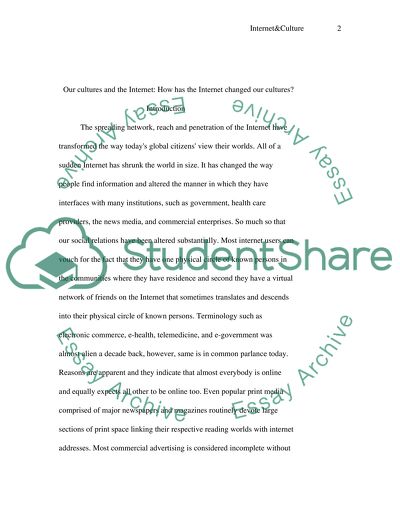Cite this document
(“Internet and Culture Essay Example | Topics and Well Written Essays - 5000 words”, n.d.)
Internet and Culture Essay Example | Topics and Well Written Essays - 5000 words. Retrieved from https://studentshare.org/technology/1504667-internet-and-culture
Internet and Culture Essay Example | Topics and Well Written Essays - 5000 words. Retrieved from https://studentshare.org/technology/1504667-internet-and-culture
(Internet and Culture Essay Example | Topics and Well Written Essays - 5000 Words)
Internet and Culture Essay Example | Topics and Well Written Essays - 5000 Words. https://studentshare.org/technology/1504667-internet-and-culture.
Internet and Culture Essay Example | Topics and Well Written Essays - 5000 Words. https://studentshare.org/technology/1504667-internet-and-culture.
“Internet and Culture Essay Example | Topics and Well Written Essays - 5000 Words”, n.d. https://studentshare.org/technology/1504667-internet-and-culture.


